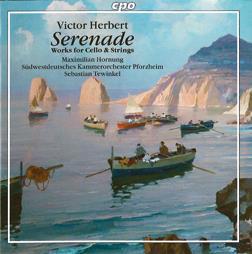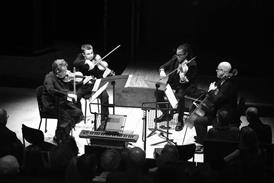
The Strad Issue: January 2012
Description: Little-known string works by an influential composer–cellist
Musicians: Maximilian Hornung (cello) Südwestdeutsches Kammerorchester Pforzheim/Sebastian Tewinkel
Composer: Herbert
Irish–American composer Victor Herbert (1859–1924) is best remembered for having written a cello concerto that inspired Dvo?ák to write his own B minor work. He was a fine cellist in his own right, and the string writing in his Serenade of 1889 is highly idiomatic, with a style paying homage to European models in a honeyed fusion of Tchaikovsky and Grieg. The warmly recorded Südwestdeutsches Kammerorchester Pforzheim under Sebastian Tewinkel certainly does justice to the work, a piece that makes a useful alternative to more familiar Romantic examples of the genre. The highlight is an evocatively plaintive Liebes-Scene, but less enticing is the finale, which is rather predictable and is let down by an overtly saccharine contrasting melody.
Herbert seems to have been most successful as a miniaturist, as can be seen in the attractive Seven Pieces, played here with their original piano accompaniments arranged for string orchestra. These cameos boast some memorable soaring melodies in the school of Tchaikovsky, particularly in ‘Yesterthoughts’, which is given a fervent and elegant rendition by cellist Maximilian Hornung. He is equally impressive in the virtuosic moto-perpetuo spiccato writing in ‘Mountain Brook’. In contrast, ‘Punchinello’ is a witty piece performed with colourful precision.
A whole disc devoted to Herbert, however, palls, not least thanks to some uncomfortably sentimental moments in the Three Pieces for string orchestra, whose concluding ‘Sunset’ offers a shameless crib of the main melody in the slow movement of Elgar’s Serenade.
Joanne Talbot
































No comments yet